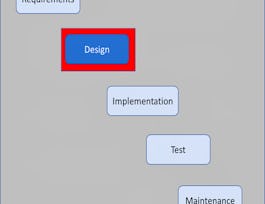This course is aimed at anybody interested in COBOL or or software development. In this course, you will be introduced to core practices, systems, and methodologies associated with IBM COBOL software development. You will learn about COBOL as a self-documenting language. You will review working with existing coding. This course also covers quality assurance (QA), technical support and project management.



IBM COBOL Software Development Practices
This course is part of IBM Mainframe Developer Professional Certificate

Instructor: Erik Herman
Sponsored by HKUST
2,588 already enrolled
(50 reviews)
Skills you'll gain
Details to know

Add to your LinkedIn profile
16 assignments
See how employees at top companies are mastering in-demand skills

Build your Software Development expertise
- Learn new concepts from industry experts
- Gain a foundational understanding of a subject or tool
- Develop job-relevant skills with hands-on projects
- Earn a shareable career certificate from IBM


Earn a career certificate
Add this credential to your LinkedIn profile, resume, or CV
Share it on social media and in your performance review

There are 6 modules in this course
In the first module of this course, we welcome everyone to the course, present the course objectives, and define other pertinent course details.
What's included
3 videos3 readings1 app item1 discussion prompt
In the second module of the course, we will describe the critical task and function of documenting your COBOL code. By the end of this module, you will understand COBOL as a self-documenting language, define COBOL documentation usage and audience, and describe the need and process of documenting the undocumented in COBOL.
What's included
8 videos3 readings4 assignments3 discussion prompts
In the third module of the course, we will describe the process of working with existing COBOL code. By the end of this module, you will identify changes required in existing code, decide how much to change, and analyze existing code with modern tools.
What's included
5 videos6 readings4 assignments2 app items3 discussion prompts
In the fourth module of the course, we will describe COBOL quality assurance (QA) and technical support concepts. By the end of this module, you will be able to describe managing bugs, explain COBOL ticketing systems, and list core COBOL technical support concepts.
What's included
8 videos4 readings4 assignments1 app item3 discussion prompts
In the fifth module of the course, we will describe COBOL technical project management. By the end of this module, you will be able to describe project management concepts related to the COBOL SDLC, identify agile and scrum project management concepts, and list COBOL project management core competencies.
What's included
8 videos3 readings4 assignments3 discussion prompts
In this module, will congratulate everyone for completing the course, present the completed course objectives, and define other pertinent course details and next steps.
What's included
2 videos1 discussion prompt
Instructor

Why people choose Coursera for their career




Learner reviews
50 reviews
- 5 stars
56%
- 4 stars
12%
- 3 stars
6%
- 2 stars
16%
- 1 star
10%
Showing 3 of 50
Reviewed on Oct 2, 2024
This is a great course for my career advancement, thank you
Reviewed on Jul 21, 2023
Very good course.. I highly recommended. It opened my eyes to a better understanding about documentation, managing bugs, technical tools and project managament utilizing top methodologies. Thank you
Reviewed on Sep 23, 2023
Very useful and informative course with good learning material, videos, and assessments
Recommended if you're interested in Computer Science

Board Infinity

University of Illinois Urbana-Champaign

University of Colorado System

Open new doors with Coursera Plus
Unlimited access to 10,000+ world-class courses, hands-on projects, and job-ready certificate programs - all included in your subscription
Advance your career with an online degree
Earn a degree from world-class universities - 100% online
Join over 3,400 global companies that choose Coursera for Business
Upskill your employees to excel in the digital economy




